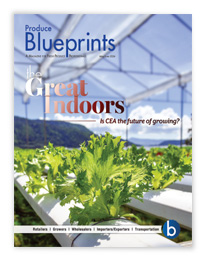The corner of my mind containing things agricultural has a phrase rattling around in it: “telling our story.”
I first heard it when I was editing a California farm magazine in the 1980s. I still see it surface, for example in a recent Farm Futures article.
Every industry has the right and even the duty to tell the public about the valuable service it provides (always within the bounds of truth, of course), and agriculture is no exception.
But it seems to me that there is an effective way to tell your story and an ineffective one. The ineffective one seemed more common 35 years ago, and it is still in use today.

It goes like this: “We produce incredibly high-quality fruits and vegetables affordably, safely, and abundantly. You”—meaning J.Q. Public—“don’t understand the difficulties we have, and you really ought to.”
Why is this ineffective?
Because no one cares.
Neither do you, as a matter of fact. For an illustration, look down at the shirt you’re wearing. Clothing is something almost (though not quite) as vital as food. This industry too is fraught with challenges—vicious competition, infinitesimal margins, trade wars, and a dozen other issues. But as consumers, we don’t care.
Consumers want affordable, durable, good-looking clothing, which manufacturers provide in greater abundance than ever (just like agriculture). They have very little interest in the industry’s difficulties.
There is another, I believe more effective, way of telling one’s story. It involves listening to concerns and addressing them specifically and on point.
For the produce industry, two of the largest concerns in consumers’ minds are food safety and environmental quality.
To a degree, these are separate matters; a grower can produce perfectly safe fruits and vegetables while causing environmental harm.
Nevertheless, these issues are intertwined in the public consciousness. Agriculture with a questionable effect on the environment is going to face tougher questions about the safety of its products.
What, then, is telling your story effectively? Facing these concerns squarely and addressing them. Some worries may be overblown and need to be corrected: others may be legitimate. In the latter cases, the industry not only needs to tell the public what a great job it is doing, but to show specifically how it is addressing those concerns.
Does the produce industry listen and respond to the public? Yes, by and large. It has addressed both food and environmental safety issues, for example, by bringing sustainability to the center of attention. Telling our story effectively would highlight those efforts.
The Farm Futures article cited above is a mixture of what I have called effective and ineffective strategies. On the one hand, it is about a grower who has taken concrete steps toward dealing with a matter of public concern (greenhouse gases).
On the other hand, there are dashes of the old “telling our story” rhetoric. Eric Snodgrass, an atmospheric scientist at Nutrien, says, “We need a message that tells the process of farming and do it in a united way, to show the world how we produce feed and food so everyone can understand why we do what we do.”
Really? Think about this: when you are in a bar and the guy next door to you starts telling his story, you’ll probably change your seat.


